
 "Next time, for sure."
"Next time, for sure."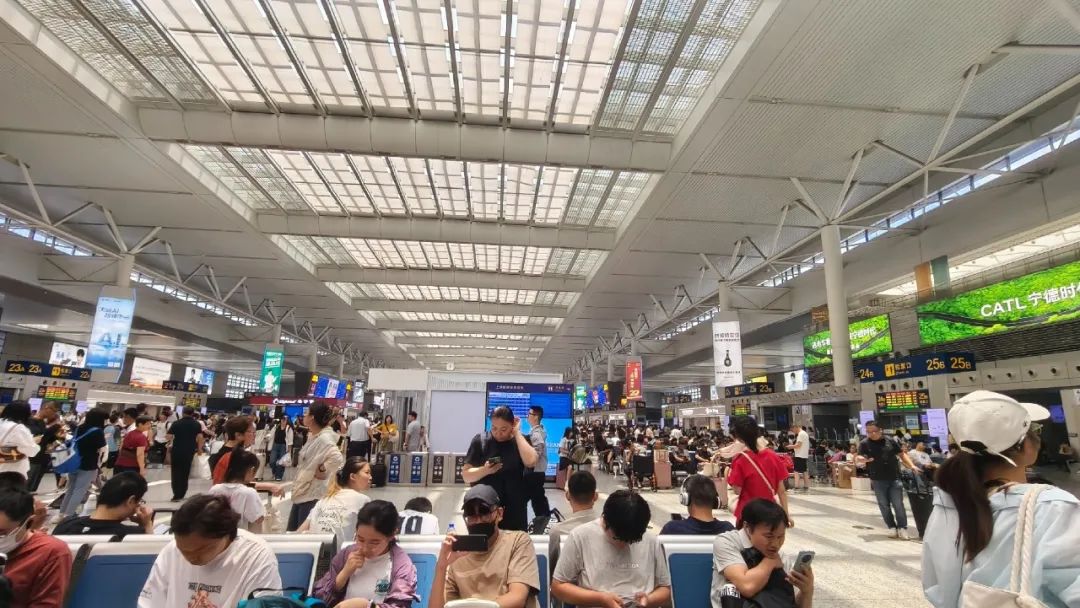
In Shanghai Hongqiao Railway Station’s waiting hall, young people with anime-themed bags—some from tier-3 and 4 cities like Sanmenxia and Jiaozuo, others from even remoter areas—had just wrapped up their BilibiliWorld2025trip.(BilibiliWorld 2025, or BW2025 for short, is the Bilibili World Digital Entertainment Animation & Culture Expo. As Asia’s largest - scale comprehensive ACGN exhibition). According to reports, it spans all 8 pavilions of the National Exhibition and Convention Center, covering 240,000 square meters. It features 167 global exhibitors, nearly 800 itasha cars, and over 30,000 cosplayers.
"I'll definitely come again next year!" a recent high school graduate said, and his eyes shining with excitement.
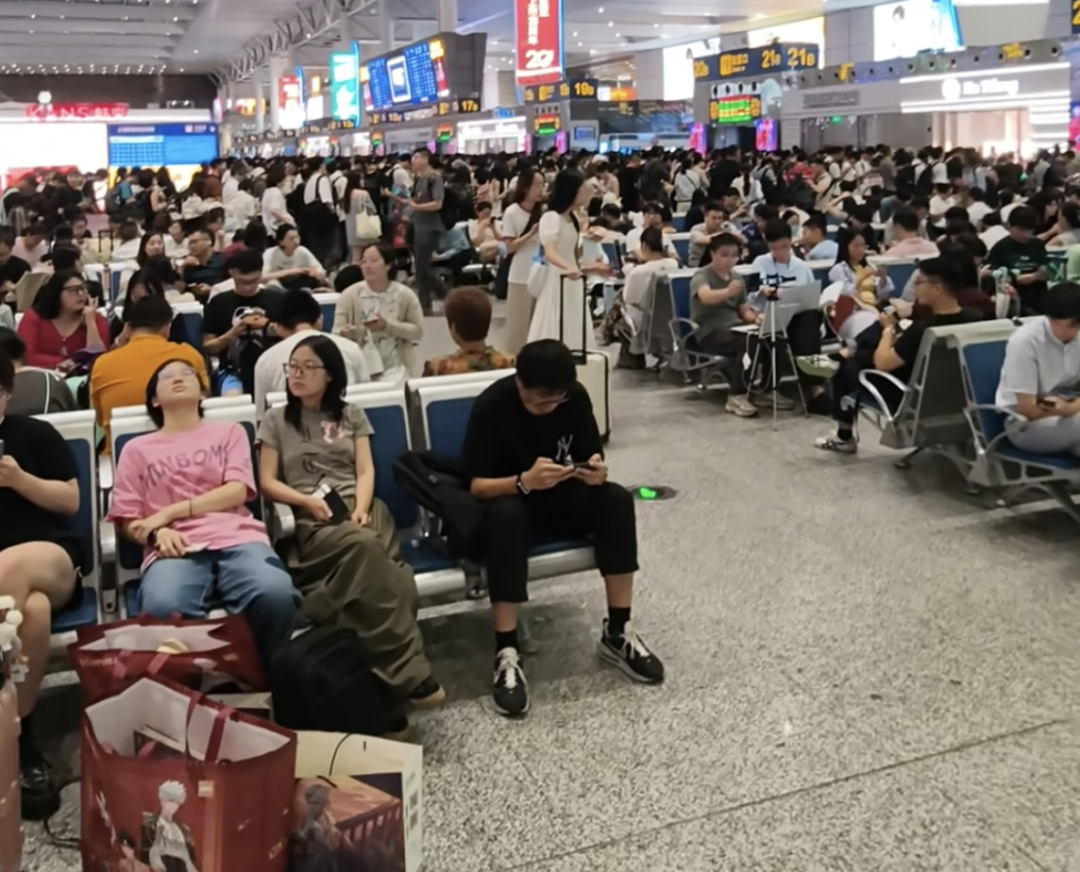
As the train pulled out, these young people who’d freely enjoyed their love for anime at BW —headed home. They were tired but carried memories they’d never forget.
Yet for many from small towns, this trip used up all their savings. Back home, some might start saving for next time, but for most, it’ll become their youth’s dearest memory. This summer might be their first and last BW journey in their lives.
 A Tough Road to Their dreams
A Tough Road to Their dreams
What does attending BW really mean?
For those in Shanghai and nearby, it’s an annual event. But for young people in small cities or remote counties, it’s a tough journey to chase a dream.
Money is the biggest hurdle. New high school grads rarely have savings, so funding the trip is a major challenge.
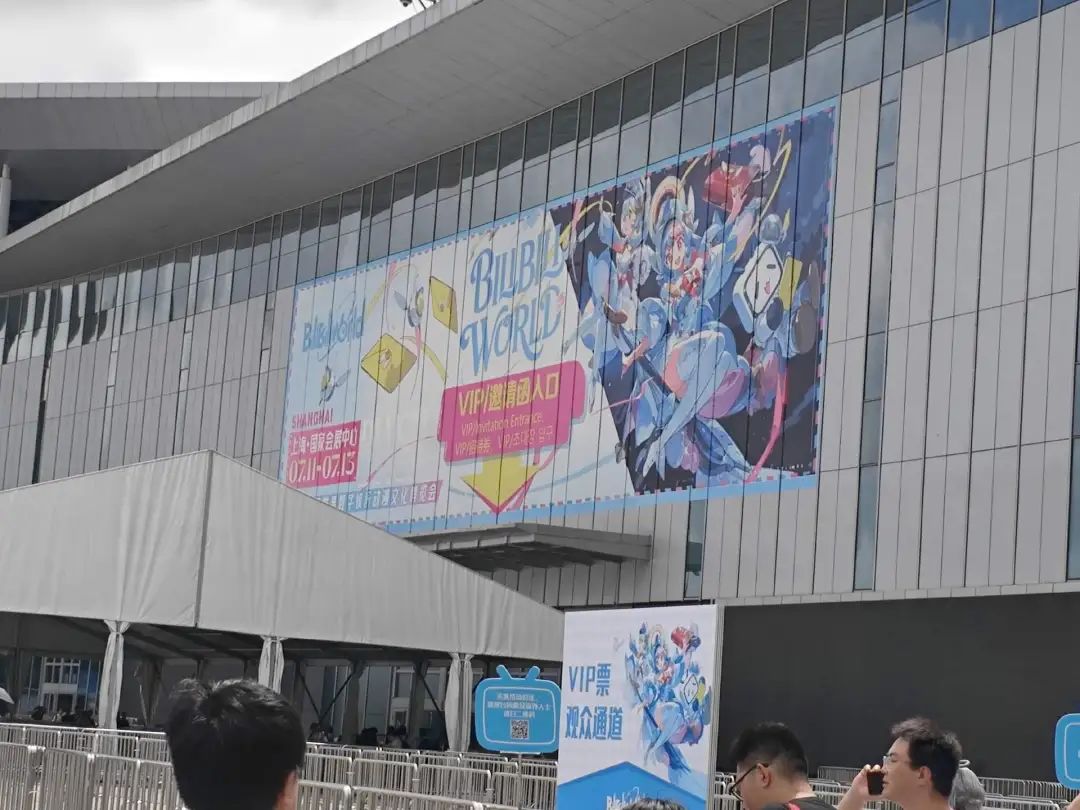
The easiest way, of course, is parental support. Many parents give their kids some travel money to relax after high school, on top of buying essentials like phones.
Yet not all parents approve of it. They worry about safety and don’t understand why their kids would travel far to attend a "strange" event in "weird" clothes. In fact, many sneak to Shanghai without telling their parents.
For those without parental funding, summer jobs and daily savings are their only options. But meager earnings in remote areas make it hard to save enough.
"I worked all July plus saved bits from my parents, but only got 1,700 yuan," one said. Another added, "Since 10th grade, I’ve skimped 100 yuan monthly from my allowance."
Even with plans made months or years ahead, costs weigh heavy—hotels near the venue cost 500-600 yuan a night, meals 30-40 yuan each. So they’re forced to cut costs relentlessly.
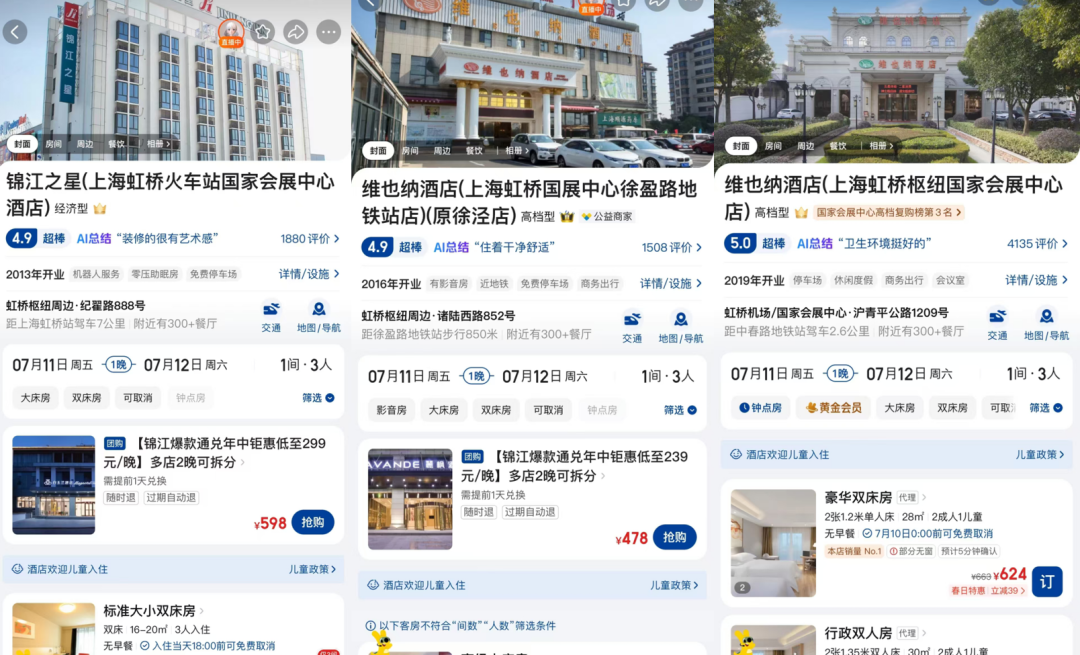
Travel costs are a big part. "I took a 2-hour bus to the railway station first, then a 7-hour hard seat to get here." "Me too. I also took a bus to the station, but mine was a 16-hour hard sleeper."
"Lucky you can get a direct ride. I had to transfer in Zhengzhou."
To them, even a hard sleeper feels luxurious. For trips under 10 hours, hard seats are their top choice—it saves them 300 to 400 yuan round trip.
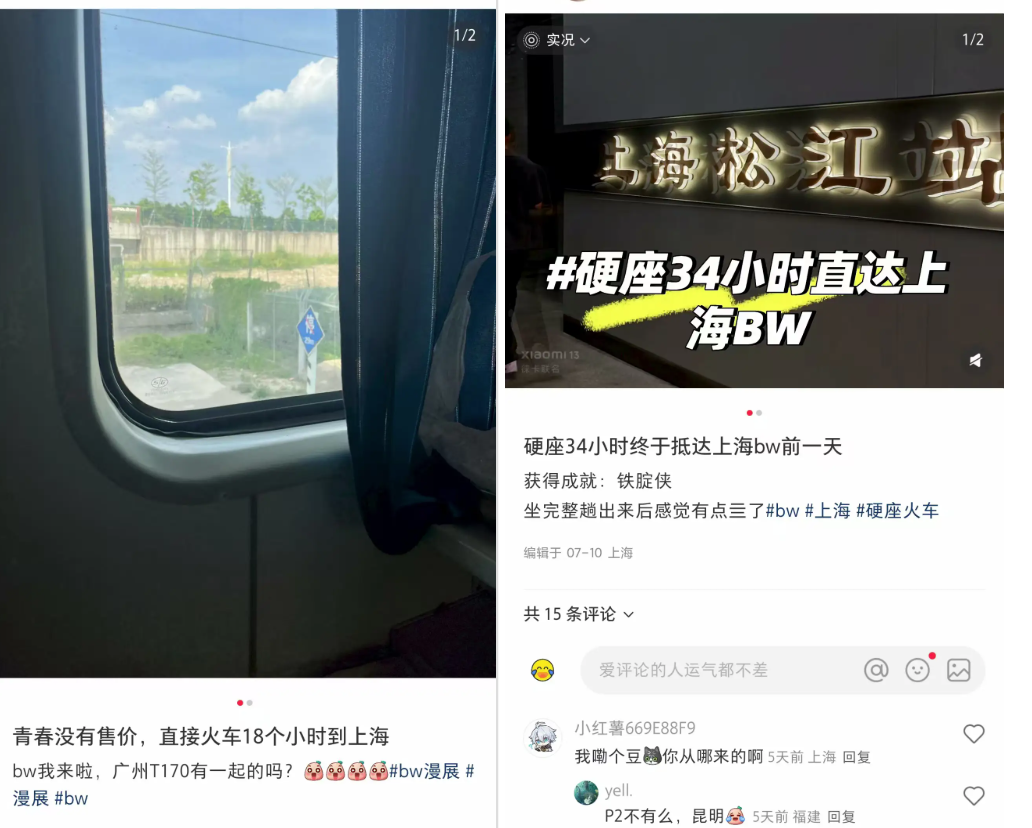
When it comes to accommodation, shared stays and youth hostels are their go-to choices. "Four of us shared a queen room, splitting the cost to just 200 yuan over four days." "We stayed in a youth hostel, only 80 yuan a day."
When I asked them what they found most difficult about attending BW, they gave an answer that was unexpected yet understandable – "not being able to get tickets."

("The platform released so many tickets—who on earth did they sell them to? Nobody's managed to get any!")
"They said to me, 'Money isn't really an issue—I can just spend frugally. The problem is, some friends of mine saved up enough but couldn't get tickets.'"
Indeed, securing tickets is the first major hurdle. BW 2025 sold out in 35 seconds during its first round of ticket sales and in just 6 seconds during the second, with nearly 900,000 people vying for spots.
Many young people from remote areas, who had spent years preparing, missed out on BW simply because they couldn't get tickets. In fact, high school graduation might be their only chance in the next decade to travel freely with the time and energy to do so.
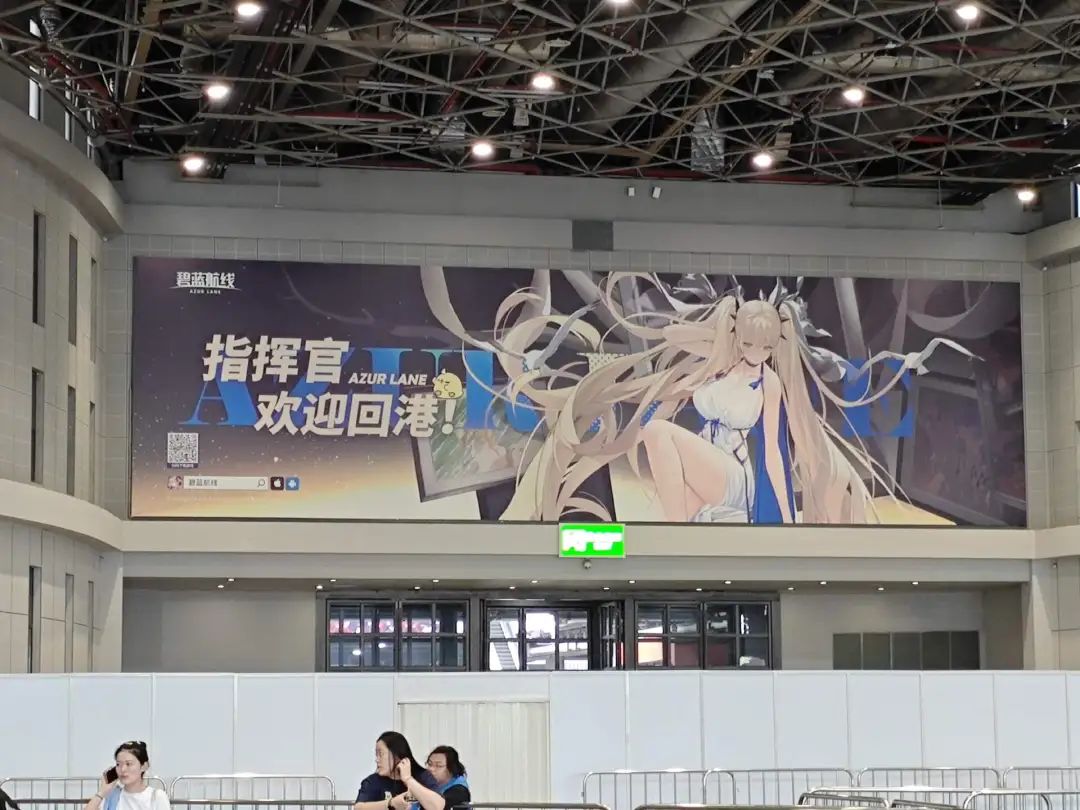
So for young people in fourth- and fifth-tier cities or even remote counties, they’ve already won several battles in their daily lives long before actually reaching BW. Attending BW is itself a result of crossing countless thorns—a dream-chasing journey earned by overcoming financial shortages, parental pressure, scrambling for tickets with sheer luck, and enduring countless other unspeakable setbacks.
 A dreamlike trip to Shanghai
A dreamlike trip to Shanghai
“Like a dream.” That’s their impression of BW.
As China’s largest comprehensive anime and gaming expo today, BW perfectly fulfills all their expectations for a convention: stunning, massive official booths, bustling crowds, sprawling, diverse venues, beautiful cosplayers, and countless fellow enthusiasts with the same passions.
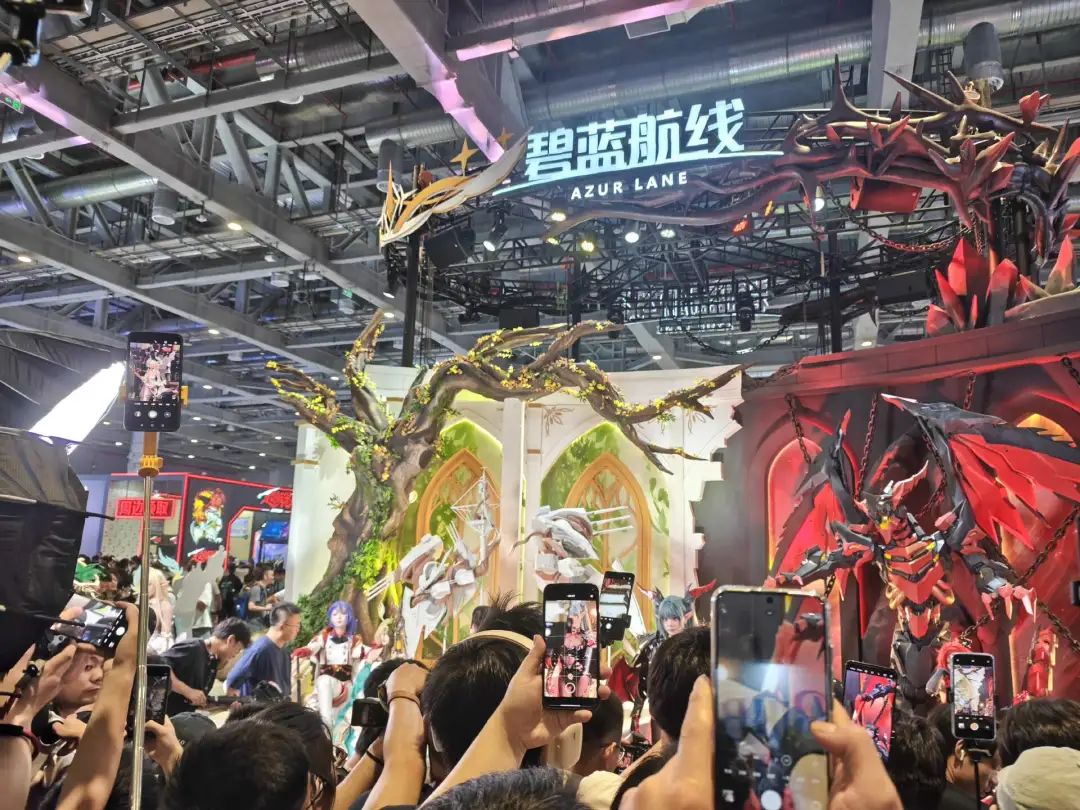
They told me: There’s simply no such thing as an anime convention in their hometowns. To attend one, they first have to take a bus to the city proper. But even then, the city conventions usually only have a few cosplayers and small stalls selling merchandise—often not even as good as the small "exclusive" events they see in Bilibili videos.
At BW, they finally realize that anime conventions can be this big, and that there are so many people who share the same interests. Here, they’re not the "kids who still watch cartoons and never grow up" in their parents’ eyes, nor the odd ones obsessed with cartoon figures. They’re just ordinary members of the anime and manga community.
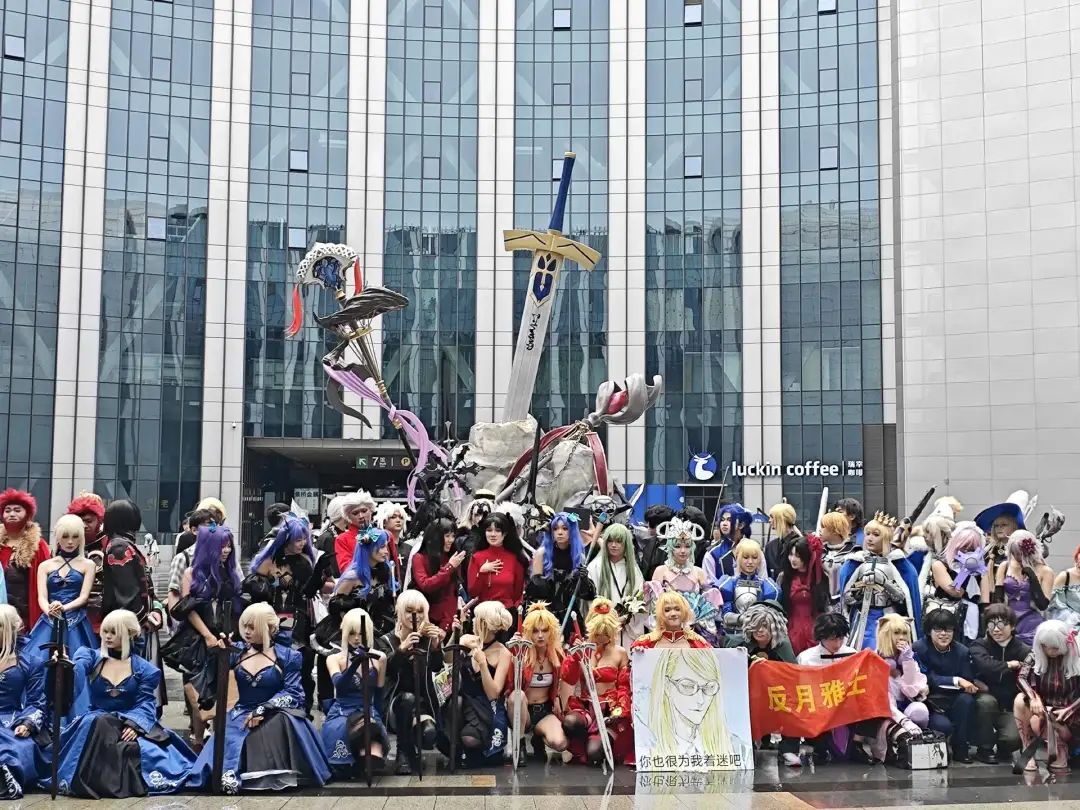
"Dreamlike, unreal, and a single day is far from enough" — that's how they recall BW. Once inside, all their plans go out the window; in the end, they linger somewhere, captivated by some detail or another.
"I originally planned to check out every booth, but once I got in, I was overwhelmed. I ended up queuing at the Honkai: Star Rail booth, watching others draw gacha cards." "I followed the FGO parade for ages." "I waited in line forever to see Sakura's original art." "Why didn't I go on the first day to see the Korean cosplayers and the Devil May Cry exhibits!"
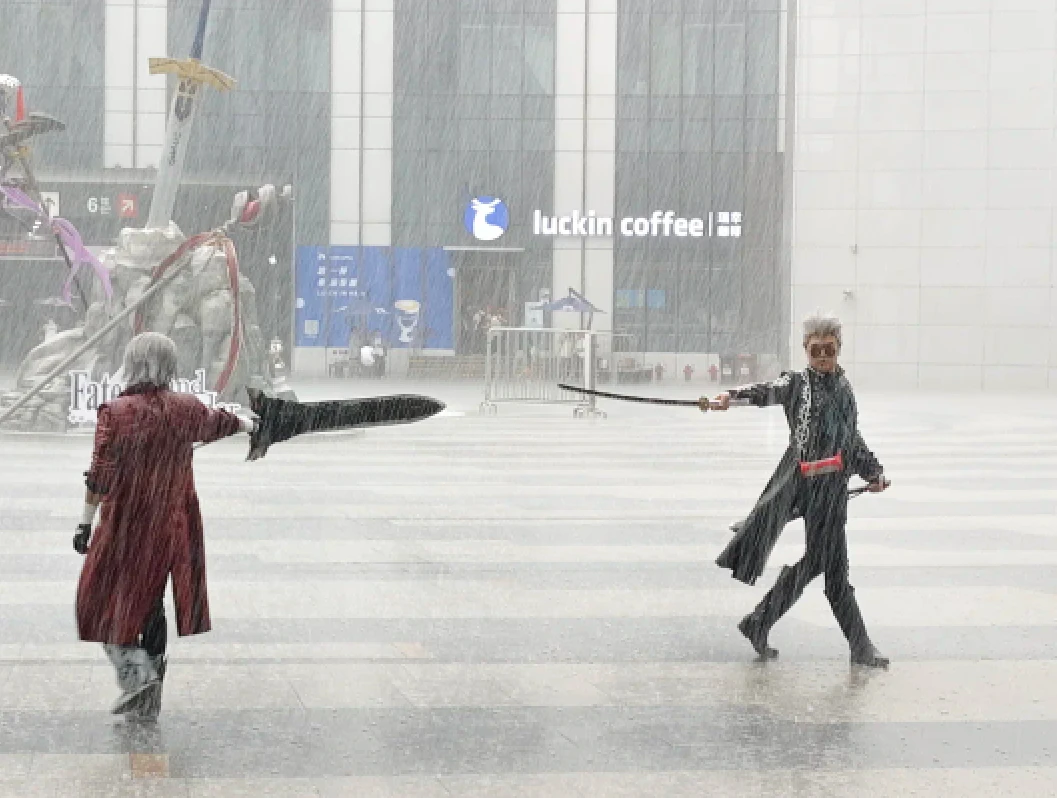
For these young people traveling from afar, every queue, every interaction, and every limited-edition item is invaluable. They know well that once back home, they may never again experience such a vibrant anime culture atmosphere.
When I asked why they chose BW over other anime conventions, they looked puzzled: "We don't know about other conventions." After I explained, they said they wouldn't travel to Shanghai for those either—having never played the related games, it's anime mobile games that truly accompanied their high school years.
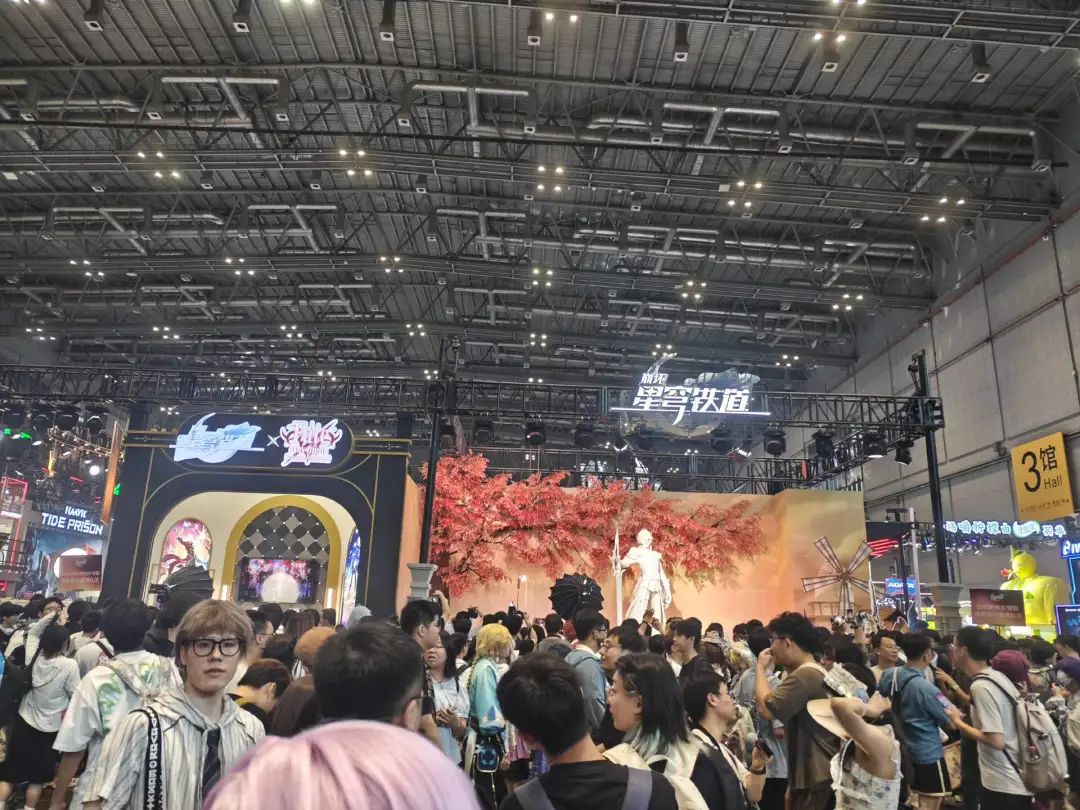
It suddenly struck me: BW might just be the new holy land of anime culture for them. For my generation, who were drawn into anime culture through Japanese animation, Akihabara was our sacred ground.
But for this new generation, anime mobile games are a core part. Players of these games might not watch anime, yet most anime fans play such games. Thus, BW and events hosted by these game companies are their holy lands—the places they most yearn to visit.
Beyond BW itself, they also visit Shanghai's anime hotspots like Jing'an Joy City, Bailian ZX Creative Park, New World Department Store, and Wujiaochang. The buildings housing these game companies are also popular check-in spots.
"The merchandise was too expensive. In the end, I bought a cola at the Lawson next to Mihoyo's office to take back as a souvenir." "I went to the building where Papergames is located and took a photo with Big Meow."

Dazzling venues, urban differences, the joy of exploring streets, travel fatigue, and careful budgeting—these mixed feelings blend into an intensely joyful dream.
When leaving, they hold their convention bags carefully, fearing even a single crease. They take photo after photo of the free souvenirs, their eyes filled with longing to return.
Yet when I asked friends who attend yearly about their impressions of this year's BW, their answers were quite different:
"Not much different from previous years." "More people than last year—so crowded with queues everywhere." "The island exhibition was perfect." This is perhaps the reality after the dream fades: BW, a routine event for local attendees, is a once-in-a-lifetime fantasy for those coming from afar.
 Reality After the Dream
Reality After the Dream
On the evening of July 13th, as the final day of BW ended, this anime extravaganza drew to a close. The last group of young people left Shanghai with reluctance over the next two days, heading home.
On their trains back, these young people from smaller cities dreamed of returning. Some silently resolved, "I must work in Shanghai someday." For them, BW became a turning point that might alter their life's trajectory.
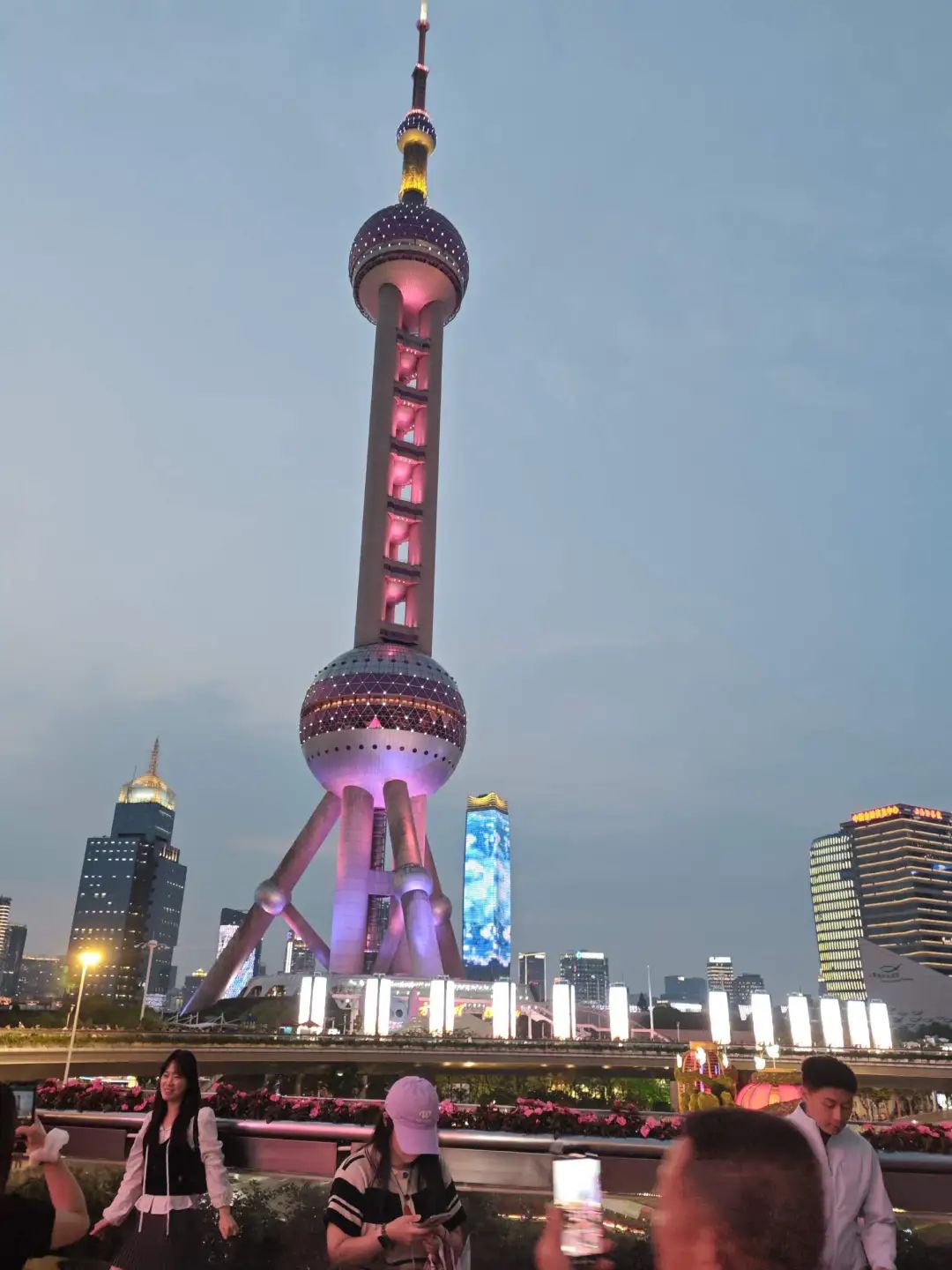
But more were defeated by harsh reality—burdened by academic pressure, family responsibilities, or limited finances. For them, BW may be the brightest yet irrepeatable chapter in their youth.
They returned to ordinary daily life, like drops of water merging into the sea, vanishing from sight. A friend of mine, for example, came to Shanghai for BW after graduating from high school in 2018, certain he'd return. But university left no time or energy for another trip, and after graduation, he found a job in his hometown.

When I asked, "Will you ever come to BW again?" he just looked at me helplessly: "No chance. My salary and schedule won't allow me to travel to Shanghai for an anime convention—it's selfish."
Online, anime culture seems part of the mainstream, but this overlooks that in broader, more remote areas, it remains niche. Even in Shanghai, it's rare to meet fellow enthusiasts outside conventions and events.
China is so vast that we often lose sight of our direction, our place, even the reality around us. Yet it’s also so small that kindred spirits seem to cross our path anywhere. "My rental has tons of cockroaches, but I barely know any Arknights fans"—this line from Arknights aptly captures the predicament of some anime game players.

For local Shanghai fans, BW is just a highlight in their cultural lives. They already look forward to August's ChinaJoy, the CP32 event later this year, and next year's BW 2026.
Meanwhile, those who traveled great distances at huge cost share their Shanghai experiences on the trains home. Many who couldn't attend leave comments under related videos, vowing to go someday. More adults, knowing they'll never get the chance, can only watch from their screens, reminiscing about the past and envying others' experiences.
For them, BW's magic is ultimately a fleeting firework—a once-in-a-lifetime dream journey. In the future, that BW ticket stub and the photos on their phones will be their closest connection to big-city dreams: the brightest memory in their youth album, and perhaps a sigh in years to come.

本文系作者Zhang Longxi授权竞核发表,并经竞核编辑,转载请注明出处、作者和本文链接。想和千万竞核用户分享你的新奇观点和发现,点击这里投稿。